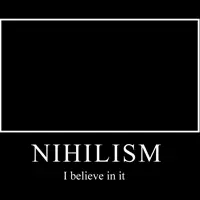Omori MBTI性格类型
性格
"Omori是什么人格? Omori是MBTI中的INTP人格类型,九型中的5w4 - sp/sx - 594,五大类型中的RLUEI,Socionics中ILI类型。"
Even though Omori is the usual silent protagonist, we can catch a glimpse of his opinions in the "FOE FACTS!" entries. "A regular FOREST BUNNY, but upside-down... Why does it do that? It seems inconvenient..." "An obviously fake trap that would only be able to fool the most feeble-minded of individuals." Interesting how he tries to define the foes while adding personal conclusions such as those shown above, it reminds me of a typical Ti way to evaluate information. This is even more blatant when compared to Aubrey and Kel's entries, and it's cute to see Omori is the only one trying to be "scientific" aha. Now, onto spoiler arguments for his type. When Sunny faces Omori, we can see how the latter poses Fe-flavored problems. Particularly in these sentences: "You tell yourself that you don't want to burden others... But the truth is that you're selfish. You just don't want people to depend on you." "When do you think about others? How long are you going to let people take care of you? You say you care but you're a liar. You've never done anything for anyone else. You're useless... less than useless. You're sick." Notice how it pays attention to the external feelings, and how he applies those external values onto himself. Ne-Si is extremely obvious, it's the entire theme of the game! To suppress his Fe, he made the dream world and white space. His dream usually reiterates characters he has seen in the real world, mixes many singular details in entirely new things (Hector the dog+rock video game=Hector the pet rock). This however is a normal behavior in dreams, so it's not the strongest of points. But as Sunny, we can see how he spaces out and starts activating his Ne while observing reality. Back to Ti, these descriptions from Jung are similar to Omori's case: "Thus it happens that this type tends to disappear behind a cloud of misunderstanding, which only thickens the more he attempts to assume, by way of compensation and with the help of his inferior functions, a certain mask of urbanity, which often presents a most vivid contrast to his real nature. Although in the extension of his world of ideas he shrinks from no risk, however daring, and never even considers the possibility that such a world might also be dangerous, revolutionary, heretical, and wounding to feeling, he is none the less a prey to the liveliest anxiety, should it ever chance to become objectively real." "With the intensification of his type, his convictions become all the more rigid and unbending. Foreign influences are eliminated; he becomes more unsympathetic to his peripheral world, and therefore more dependent upon his intimates. His expression becomes more personal and inconsiderate and his ideas more profound, but they can no longer be adequately expressed in the material at hand. This lack is replaced by emotivity and susceptibility." Having not so much dialogue, there's a LOT to interpret, unfortunately, so I wouldn't say he is "strongly INTP" but rather "most likely INTP".
背景
Described as a "depressed otaku", OMORI lives in a small room with a single lightbulb, no walls, and a cat. This room is referred to as WHITE SPACE. He is anti-social and self-conscious, though he seems to recall a time when he was not.
相关人物

Basil (Real World)

Sunny

Aubrey (Real World)

Kel (Real World)

Basil (Dream World)

Hero (Real World)

Aubrey (Dream World)

Hero (Dream World)















